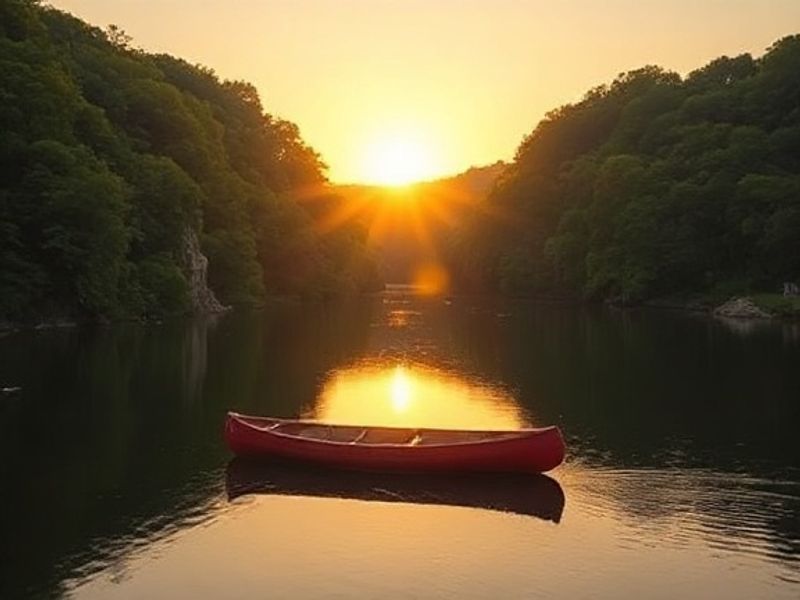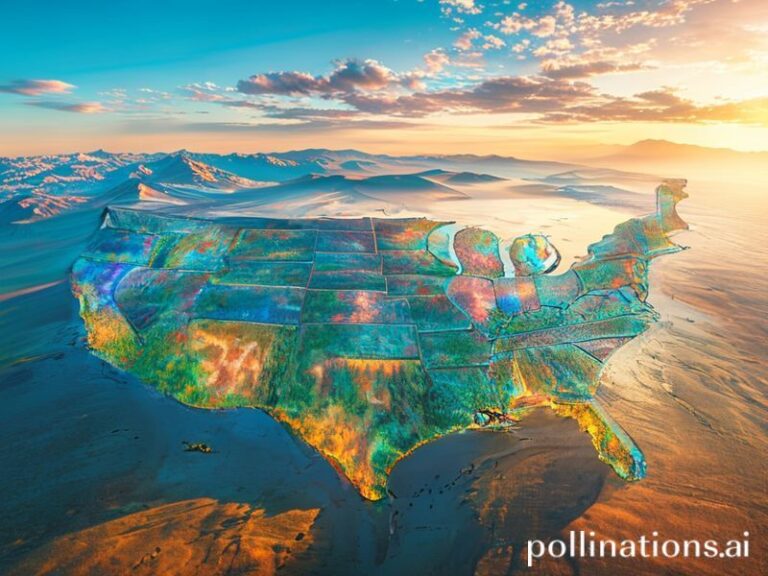Global Last-Chance Tourism: Why the Wye Valley Is Quietly Dying While We All Watch in 4K
Wye Valley: The Last Scenic Cul-de-Sac Before the World Ends
There is a quiet, green scar running between England and Wales where the River Wye performs its slow-motion escape from the 21st century. On a good day the place looks like a Tolkien screensaver—hills tossed like crumpled bed linen, sheep posing as unpaid extras, and a ruined abbey whose stones have spent eight centuries failing to hold back the ivy. To the average Instagrammer it’s a bucolic detox; to the geopolitical analyst it’s a reminder that even the planet’s designated “Areas of Outstanding Natural Beauty” are now primarily valued as carbon-offset backdrops for corporate greenwashing campaigns.
Take a wider lens and the valley becomes a microcosm of the global tug-of-war between preservation and exploitation. UNESCO slapped its modest badge of approval on the region in 1971, back when “biosphere reserve” sounded like a polite suggestion rather than an epitaph. Today, Chinese investment funds eye the valley’s hardwoods the same way they eye African cobalt and Brazilian soy—politely, with spreadsheets. Meanwhile, Silicon Valley wellness gurus helicopter in to sample “forest bathing,” which is what happens when you charge $400 an hour to rediscover the concept of taking a walk without checking TikTok every eight seconds.
The Wye itself is dying, of course. Phosphate run-off from intensive chicken farms upstream has turned the river into a nutrient-rich soup that would make a dystopian ramen chef weep with envy. Last summer the water turned such a lurid shade of green that locals half-expected a radioactive Shrek to emerge demanding reparations. Environmental agencies issue stern press releases, supermarkets promise “sustainable” chicken by 2035 (a date comfortably beyond most middle-management retirement plans), and the river keeps eutrophying like a hung-over philosophy major discovering nihilism.
Still, the valley persists as a handy metaphor for every other postcard destination now serving as the holding pen for late-stage capitalism’s guilt. Visit Nepal—see the glaciers before they’re puddles. Tour the Great Barrier Reef—snorkel through the hospice ward of coral. Fly to the Wye, buy a locally distilled gin infused with foraged elderflower, and post a sunset shot captioned “Nature heals!” while the algorithm tallies your carbon sins and quietly sells the data to Shell.
International visitors arrive in modest droves. Germans cycle the disused railway line with the grim efficiency of people who have already booked next year’s Baltic coast hurricane tour. Japanese honeymooners snap pictures of Tintern Abbey, politely ignoring the drone overhead mapping cracks for the inevitable NFT auction. Americans ask where they can find the “real King Arthur stuff,” apparently disappointed that Excalibur hasn’t been franchised into a drive-thru experience with collectible swords and a gluten-free grail.
Even the local economy has learned to monetize its own obsolescence. A former sawmill now hosts a craft collective selling reclaimed-wood bowls at prices that suggest each tree voluntarily fell itself out of midlife crisis. The youth hostel charges boutique-hotel rates for the privilege of sharing a bunk with a stranger who smells of kombucha and impending burnout. Everyone agrees it’s better than Amazon warehouses, which is roughly the same bar we now use for liberal democracies.
And yet, on certain Tuesdays when the mist forgets to lift and the only sound is a curlew auditioning for a funeral dirge, the valley offers something rarer than any UN designation: a glimpse of what the planet looked like before we turned it into a balance sheet. That moment never lasts—usually it’s interrupted by the ping of a push notification announcing flash floods in Pakistan or wildfires in Greece—but it lingers just long enough to remind you that irony and beauty can coexist, like scorpions under a desert rock.
The Wye Valley, then, is not merely a picturesque cul-de-sac between two quarrelling Brexit neighbours. It is the world’s refrigerated showroom for a commodity in terminal decline: stillness. Come quickly, the brochure might as well read, before we figure out how to monetize that too.







